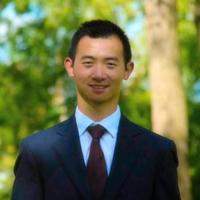"Towards Low-Power Spintronic Devices with Topological Insulators," by Peng Li

Abstract
Spintronics-based technology, which uses spins to represent and propagate information, holds promise to realize devices that surpass the current CMOS transistor technology in power, density and speed. For example, magnetic random-access memory (MRAM) based on magnetic tunnel junctions were identified as promising non-volatile memory but its use has been limited. A second generation MRAM-based on spin transfer torque has reduced currents. However, next generation MRAM based on pure spin currents may provide even more energy efficiency. My research is focused on developing power-efficient ways to generate, propagate and manipulate spins via pure spin currents. In order to develop such pure spin current technologies, the development of new materials such as topological insulators must come hand in hand with the development of new devices. In this talk, I will demonstrate (i) low damping ferromagnetic insulating thin films for achieving efficient spin current generation in spintronic devices, (ii) spin current generation in these films and large spin-charge interconversion in neighboring layers, (iii) integration of ferromagnetic insulators with topological insulators for future spin-based memory device, and (iv) spintronic devices via the spin Seebeck effect and photo-spin-voltaic effect. Together these results lay the foundation for new energy-efficient pure spin current-based electronics.
Biography
Dr. Peng Andy Li is a postdoctoral fellow of Applied Physics at Stanford University. His research is focused on development of spintronic devices with quantum materials. He joined Professor Gary H. Bernstein’s group as a graduate student in 2009 and received a Ph.D. degree in Electrical Engineering at ND in 2014. He then worked as a postdoctoral fellow in Department of Physics at Colorado State University (2014-2015, 2016-2018), where he demonstrated the first current induced switching in magnetic insulators and developed low-power spin memory devices utilizing topological insulators. From 2015 to 2016, he worked as a senior research engineer at Seagate Technology, and developed innovative metrology for Heated Assisted Magnetic Recording. Dr. Li has published 25 papers, owns one patent and five award-winning conference presentations. He is a senior editorial board member of IEEE Magnetics Letters, a program committee member of Annual Conference for Magnetism and Magnetic Materials, IEEE International Microwave Magnetics Conference. Dr. Li will join Department of Electrical and Computer Engineering at Auburn University as an assistant professor this fall.
Seminar sponsored by the Department of Electrical Engineering